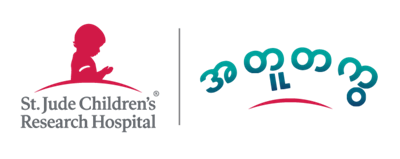-
Cancer
(KAN-ser)
Develops when cells in your body begin to grow out of control. Normal cells grow, divide, and die naturally. Instead of dying, cancer cells continue to grow and form new abnormal cells. Cancer cells often travel to other body parts where they grow and replace normal tissue. This process is called metastasis. Cancer cells develop because of damage to DNA. DNA is in every cell and directs all its activities. When DNA becomes damaged, the body is usually able to repair it. In cancer cells, the damage is not repaired. People can inherit damaged DNA, which accounts for inherited cancers. Many times, DNA becomes damaged by exposure to something in the environment, like smoking. Many cancers have no known cause.
-
Cancer-related post-traumatic stress
(KAN-ser-ree-LAY-ted post-traw-MA-tik stress)
A condition that develops in some people who are diagnosed with cancer. Symptoms of cancer-related post-traumatic stress (PTS) include having frightening thoughts or trouble sleeping, being distracted or overexcited, feeling alone, or losing interest in daily activities. Symptoms may also include feelings of shock, fear, helplessness, or horror. Cancer-related PTS can occur anytime after diagnosis, including during or after treatment. Relaxation training, counseling, support groups, and certain medicines may be used to reduce symptoms of PTS.
-
Cancer subtype
(KAN-ser SUB-tipe)
Describes the smaller groups that a type of cancer can be divided into, based on certain characteristics of the cancer cells. These characteristics include how the cancer cells look under a microscope and whether there are certain substances in or on the cells or certain changes to the DNA of the cells. It is important to know the subtype of a cancer in order to plan treatment and determine prognosis.
-
Cancer treatment vaccine
(KAN-ser TREET-ment vak-SEEN)
A type of vaccine that is usually made from a patient’s own tumor cells or from substances taken from tumor cells. A cancer vaccine may help the immune system kill cancer cells. Also called cancer vaccine.
-
Cancer vaccine
(KAN-ser vak-SEEN)
A type of vaccine that is usually made from a patient’s own tumor cells or from substances taken from tumor cells. A cancer vaccine may help the immune system kill cancer cells. Also called cancer treatment vaccine.
-
Candidiasis
(KAN-dih-DY-uh-sis)
A condition in which Candida albicans, a type of yeast, grows out of control in moist skin areas of the body. It is usually a result of a weakened immune system, but can be a side effect of chemotherapy or treatment with antibiotics. Candidiasis usually affects the mouth (oral candidiasis); however, rarely, it spreads throughout the entire body. Also called candidosis and thrush.
-
Capillaries
The smallest type of blood vessel. A capillary connects an arteriole (small artery) to a venule (small vein) to form a network of blood vessels in almost all parts of the body. The wall of a capillary is thin and leaky, and capillaries are involved in the exchange of fluids and gases between tissues and the blood.
-
CAR T-cell
(kar T-sel)
A type of treatment in which a patient's T cells (a type of immune system cell) are changed in the laboratory so they will attack cancer cells. T cells are taken from a patient’s blood. Then the gene for a special receptor that binds to a certain protein on the patient’s cancer cells is added in the laboratory. The special receptor is called a chimeric antigen receptor (CAR). Large numbers of the CAR T cells are grown in the laboratory and given to the patient by infusion. CAR T-cell therapy is being studied in the treatment of some types of cancer. Also called chimeric antigen receptor T-cell therapy.
-
Carcinogen
(kar-SIH-noh-jin)
Any substance that causes cancer.
-
Cardiac
(KAR-dee-ak)
Having to do with the heart.

